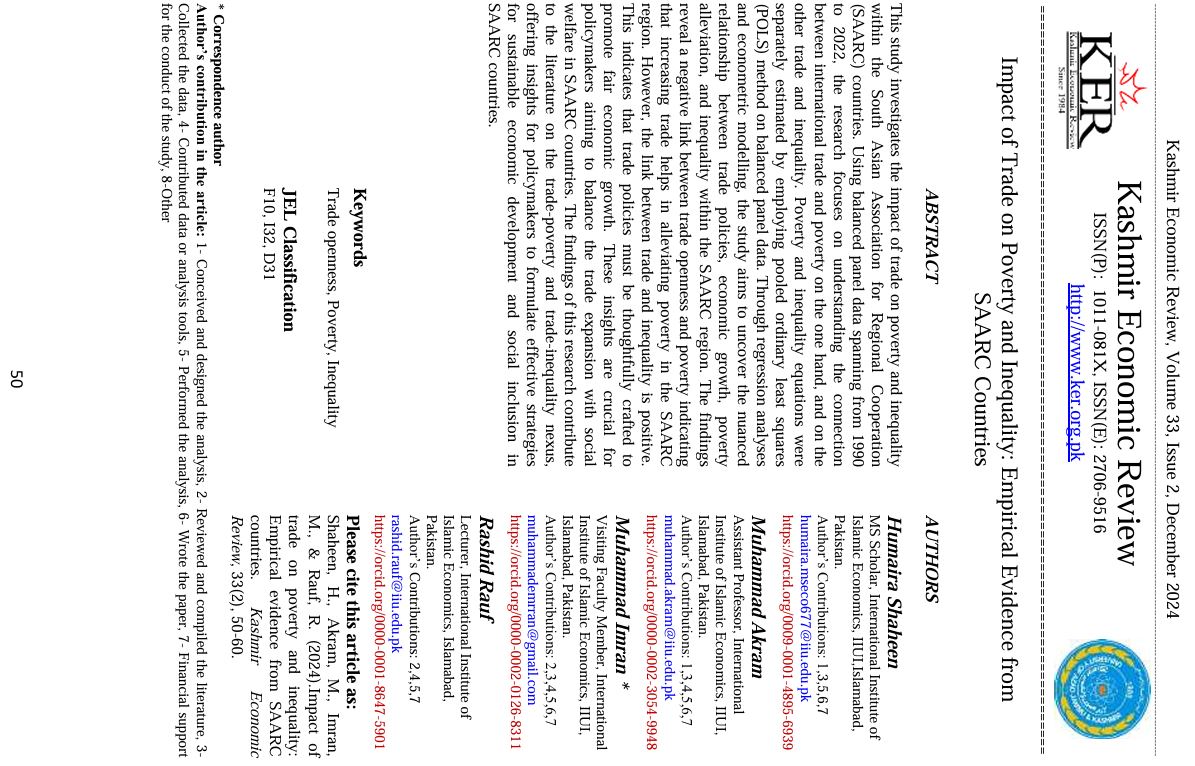Impact of Trade on Poverty and Inequality: Empirical Evidence from SAARC Countries
Main Article Content
Abstract
This study investigates the impact of trade on poverty and inequality
within the South Asian Association for Regional Cooperation
(SAARC) countries. Using balanced panel data spanning from 1990
to 2022, the research focuses on understanding the connection
between international trade and poverty on the one hand, and on the
other trade and inequality. Poverty and inequality equations were
separately estimated by employing pooled ordinary least squares
(POLS) method on balanced panel data. Through regression analyses
and econometric modelling, the study aims to uncover the nuanced
relationship between trade policies, economic growth, poverty
alleviation, and inequality within the SAARC region. The findings
reveal a negative link between trade openness and poverty indicating
that increasing trade helps in alleviating poverty in the SAARC
region. However, the link between trade and inequality is positive.
This indicates that trade policies must be thoughtfully crafted to
promote fair economic growth. These insights are crucial for
policymakers aiming to balance the trade expansion with social
welfare in SAARC countries. The findings of this research contribute
to the literature on the trade-poverty and trade-inequality nexus,
offering insights for policymakers to formulate effective strategies
for sustainable economic development and social inclusion in
SAARC countries.
Article Details

This work is licensed under a Creative Commons Attribution-ShareAlike 4.0 International License.

